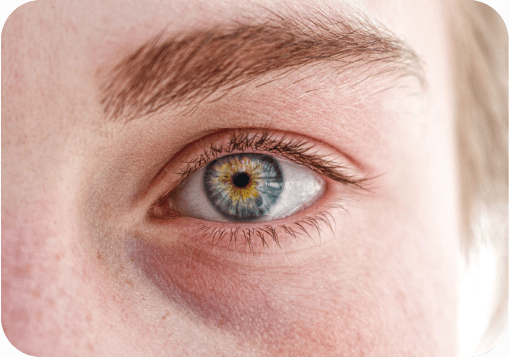Eye Roles:
A Quick Look at the Importance of Eye Health
When was the last time you thought about the health of your eyes? For people who are blessed with the gift of eyesight, being able to see is the most natural thing next to breathing. We wouldn’t normally fuss over our eyes until something goes wrong or until something hurts. But the thing with our eyes is that they do way more than enable us to see and visualize–and yep, we made a list. But before we get down to that, let’s take a look at the basics.
Sight vs. Vision: What’s the Difference?
We often see the words sight and vision used interchangeably but they are actually two different things. Sight refers to the sensorial experience of seeing wherein the eyes see objects when light reflects on them or when we see them move.
Sight and vision are crucial to everyday life, but having healthy eyes enables us to do so much more besides telling cheeses apart. Read further to know the important functions of our eyes in everyday life!
- Our eyes take and retain information.
80% of the information we perceive is through sight. In fact, our eyes and brain work directly with each other to receive, integrate, and process information so that we can use this knowledge when a situation calls for it.

The dynamics between the eyes and brain also mean that any threats to eye health may also affect cognitive processes and mental health. When our eyes are healthy, we are capable of experiencing everything we see, hear, smell, taste, and touch and process this information so that we can respond accordingly especially in social settings.
- Our eyes keep us safe.
Our sight and vision help us become aware of our surroundings and tell us if we might be in danger. It’s your eyes that tell you whether it’s safe to cross the street, they let you check if your food has gone bad or is still good for consumption, and they make sure you drive safely. Being able to see properly especially when there is limited light is crucial to our safety and the people around us which means we have to take eye care seriously even if sometimes that means getting glasses, contact lenses, or medication.

- Our eyes hold a lot of information about our health.
Eye exams come in different types depending on what you want to learn about the health of your eyes, or your body for that matter. Some of the basic ones include visual acuity test to see how clear your eyesight is versus the standard 20/20 vision, retinoscopy and refraction tests to determine the right lenses for eyes that require glasses, and peripheral visual field test which examines your visual field and peripheral vision. All these tests and more help keep your vision as precise as possible.

- Our eyes fight diseases.
A healthy pair of eyes play a big role in preventing eye diseases such as age-related macular degeneration (AMD), glaucoma, and cataracts. And without eye illnesses, you also prevent the symptoms they come with such as headaches, fatigue, and at times temporary blindness which can happen when your optic nerves sustain damage. Some eye illnesses do not manifest symptoms at early stages which stresses the importance of not just keeping your eyes nourished but getting checked as well.

You see, taking care of our eyes is not just about ensuring our eyesight and vision are in good shape. They also serve as good reminders to take care of our overall health. The good news is that eye care is something you can get started while you’re young.
Help nourish your eyes by taking ClearSight. It is a safe and tested eye food supplement made with lutein, beta carotene, zinc, omega-3, and Vitamin E which all help maintain eye health and protect them from eye diseases. Learn more about ClearSight and shop your own pack!
